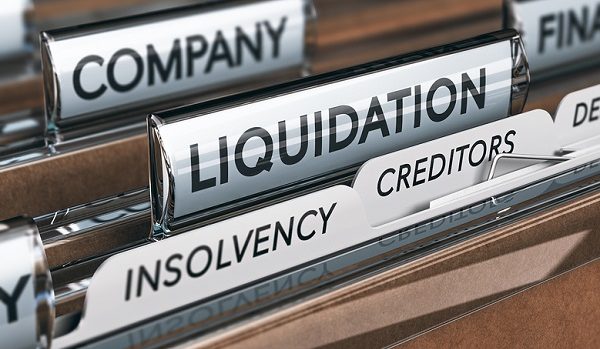Liquidation sounds final, doesn’t it? Like the end of the road for a company. And in many ways, it is. But trading during liquidation? That’s where things get a bit more complicated.
You might assume that once a company enters liquidation, it’s done. No more business, no more sales, no more anything. But here’s the thing. That’s not always how it plays out. Under certain conditions, a company can still trade, even after liquidation has officially started.
First, What Exactly Is Liquidation?
In simple terms, liquidation happens when a company can’t pay its debts and needs to be wound up. Its assets are sold off to repay creditors, and the business, as a legal entity, eventually ceases to exist.
There are a few types of liquidation.
- Creditors’ Voluntary Liquidation (CVL): This is when the directors recognise the company is insolvent and decide to wind it up voluntarily.
- Compulsory Liquidation: A court orders the company to be wound up, usually after a creditor files a petition.
- Members’ Voluntary Liquidation (MVL): This one’s a bit different. It’s used when the company is solvent, but the owners want to close it down in a structured way.
The rules around trading during liquidation depend a lot on which type of liquidation we’re talking about.
So, Can a Company Still Trade in Liquidation?
Short answer? Sometimes. But it’s definitely not business as usual.
For example, during a Members’ Voluntary Liquidation, trading might carry on for a short while to finish up existing contracts or sell off stock. The company isn’t insolvent, so there’s no harm in continuing some activity while the business wraps up.
But things change when a company’s insolvent. Trading while insolvent is a whole different ballgame and comes with serious risks, especially for directors.
Trading While Insolvent: Why It’s Risky
Let’s say a director knows their company can’t pay its bills and enters liquidation. If they keep trading after that point, they could be accused of wrongful trading.
Wrongful trading is basically carrying on business when you knew (or ought to have known) there was no reasonable chance the company could avoid going under. If that happens, a director could become personally liable for some of the company’s debts. That’s a big deal.
There’s also fraudulent trading, which is even worse. That’s when trading happens with the intent to cheat creditors or defraud them. We’re talking serious legal consequences here, including potential criminal charges.
So yes, there are moments where limited trading during liquidation might be allowed. But it’s walking a tightrope.
Why Would Trading Continue?
You might wonder, why even bother trading if the company’s being shut down?
Well, here’s a scenario. Say the company has unsold stock that still holds value. It might make sense to sell it to bring in a better return for creditors. The liquidator might authorise a bit of continued trading purely for that purpose.
Or maybe there are contracts that need to be completed. Cancelling them might result in penalties, so fulfilling them could actually save money overall.
In these cases, it’s not about running the business as usual. It’s more about wrapping things up in a way that makes financial sense.
Who Decides If Trading Can Happen?
Once liquidation starts, control of the company passes to the liquidator. This person (or firm) is in charge of gathering assets, settling debts, and making sure the winding-up process follows the rules.
If any trading happens, it needs the liquidator’s approval. They’ll only allow it if it benefits creditors, and if it’s not going to make the financial hole deeper.
Also, it’s worth noting that directors don’t have the same powers once liquidation begins. Their role basically stops, unless the liquidator asks them to help out.
What Directors Need to Watch Out For
If you’re a company director and you’re anywhere near insolvency, you’ve got to be careful. Keep proper records. Don’t ignore advice. And don’t assume you can just carry on as usual while things are being sorted.
Trading during liquidation without the liquidator’s green light is risky. You could end up facing personal liability or worse.
It’s smart to speak with an insolvency practitioner the moment things start looking rough. They can help figure out what’s allowed and what’s not. And in a situation where every decision matters, that kind of guidance is hard to beat.
What About Trading Names?
One thing to keep in mind. Once a company’s gone through liquidation, directors can’t just set up a new company with the same or similar name. Not without jumping through some very specific legal hoops.
This rule is meant to protect creditors and prevent confusion. You don’t want a director shutting one company down, leaving debts behind, and starting a fresh one the next week under nearly the same name. That’s called a phoenix company, and while it’s not always illegal, there are strict conditions for doing it properly.
So, What’s the Takeaway?
Trading during liquidation is possible, but only in very limited, controlled ways. If there’s any trading at all, it’s usually short-term and only happens when it clearly benefits creditors.
Directors need to tread carefully. Once a company is insolvent or in liquidation, the usual rules no longer apply. Trying to carry on trading without proper authority isn’t just risky. It can lead to legal action, fines, or personal financial consequences.
If you’re dealing with a company in financial trouble, get expert advice early. It’s far easier to handle things properly at the start than to clean up a mess later on.
And remember. Just because the business is winding down doesn’t mean everything stops instantly. But whatever happens next has to be handled by the book.
Sources
- UK Government – Insolvency Service: Types of Liquidation
https://www.gov.uk/liquidate-your-company - Insolvency Act 1986 – Legislation.gov.uk
https://www.legislation.gov.uk/ukpga/1986/45/contents - UK Government – What happens to directors during liquidation
https://www.gov.uk/liquidate-your-company/directors-responsibilities



